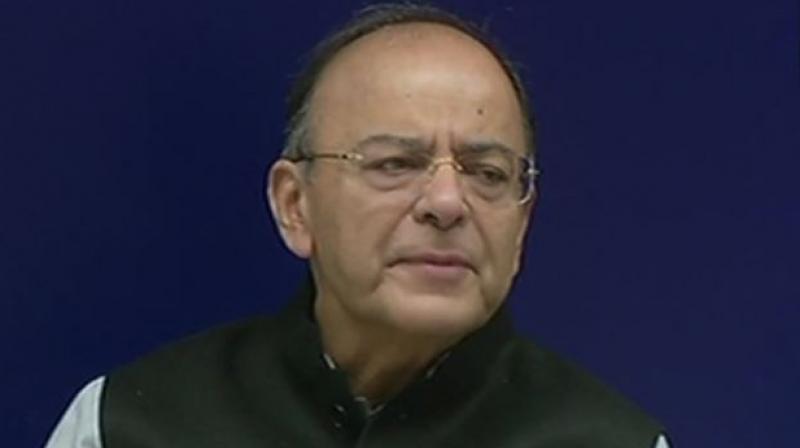GST Council announces e-wallets for exporters, tweaks rates for 27 items
In a big relief, small and medium businesses will now have to file tax returns quarterly instead of monthly.

New Delhi: In a relief to exporters, Union Finance Minister Arun Jaitley at the 22nd meeting of the GST Council on Friday declared that each exporter will get an e-wallet, where a notional amount will be paid to him/her as an advance credit through which they can pay their taxes.
Taking into account the fact that exporters’ credit was facing blockage that affected their liquidity, the Goods and Services Tax (GST) Council declared the roll out of these e-wallets by April 2018.
Jaitley also said that exporters will be refunded for the month of July and August from October 10 and from October 18, respectively, by way of cheque.
The e-wallets will provide exporters the funds to pay the tax without choking liquidity and actual refunds will be offset against advance refund in e-wallet.
It should be noted that prior to GST, exporters did not incur taxes for import of inputs for export purposes. However, after GST, IGST blocked their working capital.
The Council also reduced the tax compliance on small and medium businesses in two ways.
Firstly, the Council raised the threshold for availing the composition scheme from companies with turnover of Rs 75 lakh to those with turnover of up to Rs 1 crore.
Secondly, those having turnover of up to Rs 1.5 crore and constitute 90 per cent of the assesses outside of composition scheme, will be filing quarterly returns instead of monthly returns.
The tax rates under composition scheme is 1 per cent for traders, 2 per cent for manufacturers and 5 per cent for restaurants. In the service sector, composition scheme is available only for restaurants.
On the much awaited roll out of the e-way bill, Jaitley said that it will be implemented by April 1, 2018.
Reverse charge mechanism for transactions between registered and unregistered businesses has been deferred till Mar 31, 2018. Reverse charge means the liability to pay tax is on the recipient of supply of goods or services instead of the supplier of such goods or services in respect of notified categories of supply.
The GST Council also made some major changes as far as rates are concerned. "Rates have been tweaked on 27 items," said Jaitley.
Following are the changes that have been made:
- Man-made yarn will now be taxed under 12 per cent slab as against 18 per cent – this will bear an impact on the price of textiles.
- Ayurvedic medicines will now incur 5 per cent GST as against 12 per cent earlier.
- Job work items like zari will now be taxed under 5 per cent slab as against 12 per cent ealier.
- Stationery items will now attract 18 per cent as against 28 per cent earlier.
- Government contracts involving intensive labour, like irrigation projects will be taxed at 5 per cent GST.
- Diesel engine parts will now attract 18 per cent GST instead of 28 per cent earlier.
- Stones used in flooring, except marble and granite - will be now taxed at 18 per cent instead of 28 per cent.
- GST on ICDS food packets for children reduced from 18 per cent to 5 per cent.
- GST on sliced dried mangoes reduced from 12 per cent to 5 per cent.
- Unbranded namkeen will attract 5 per cent GST
- Plastic and rubber waste down will incur 5 per cent GST instead of 18 per cent
- GST on paper waste reduced to 5 per cent from 12 per cent.
- Khakra and plain chapattis reduced to 5 per cent.
Jaitley also said there was an impression among members of the GST Council that restaurants were not passing on the benefit of input tax credit to consumers. In this regard, a committee of finance ministers will revisit the taxation system for restaurants.

